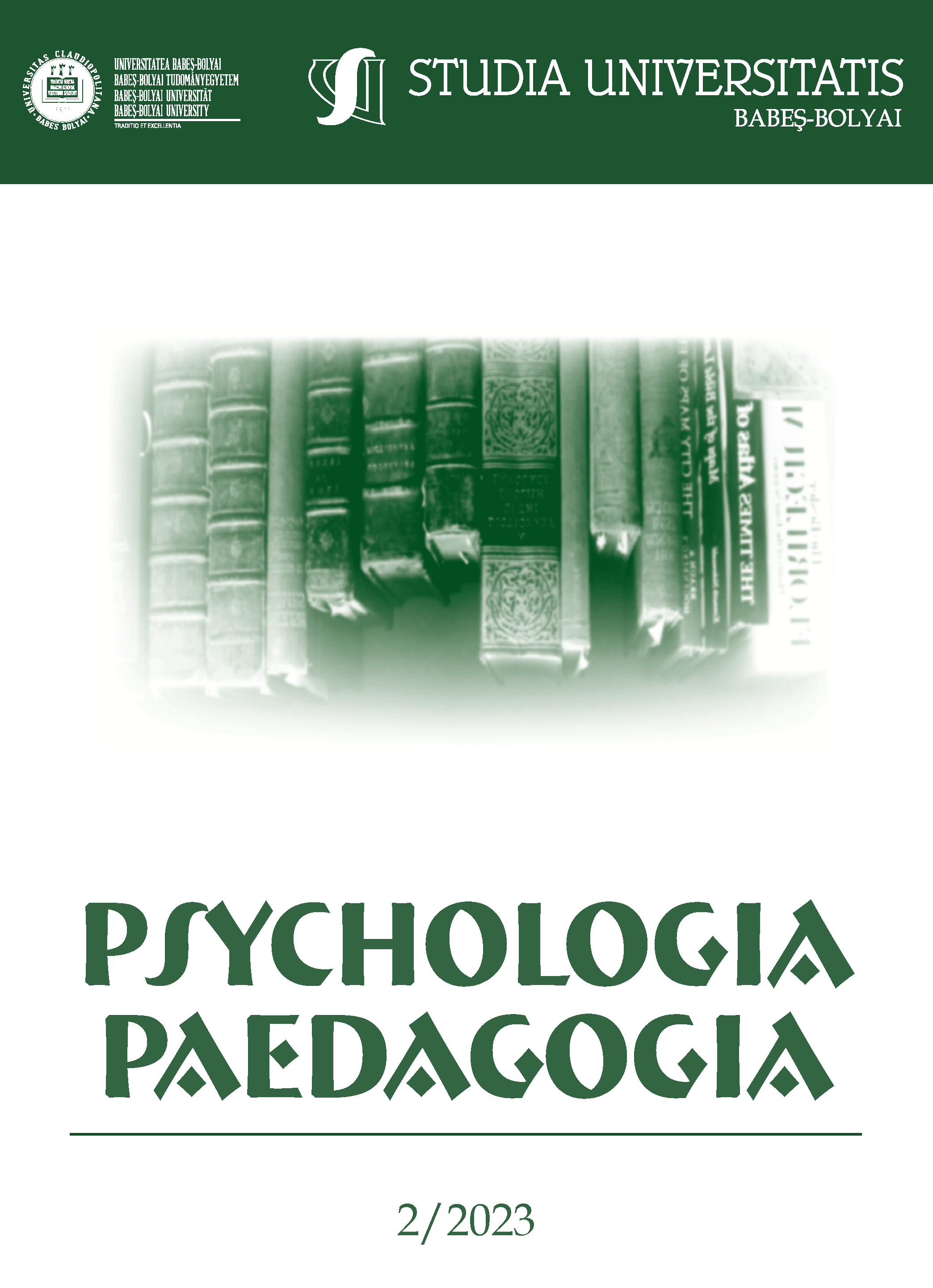Digital technologies for open and collaborative teaching. A brief framework
DOI:
https://doi.org/10.24193/subbpsyped.2023.2.08Keywords:
collaborative teaching and learning, digital learning, digital platforms, lesson designAbstract
The present paper aimed to open a debate about the increasing needs of collaborative learning in digital learning contexts. Collaborative teaching and learning are effective approaches to enhance learning and facilitate students’ satisfaction. Digital platforms may help teachers develop collaborative learning environments and provide ways of building various teaching scenarios, promoting autonomous and structured learning contexts.
ZUSAMMENNFASSUNG. Dieser Beitrag soll eine Debatte über den wachsenden Bedarf an kollaborativem Lernen in digitalen Lernkontexten eröffnen. Kollaboratives Lehren und Lernen ist ein effektiver Ansatz, um das Lernen zu verbessern und die Zufriedenheit der Studierenden zu fördern. Digitale Plattformen können Lehrkräften dabei helfen, kollaborative Lernumgebungen zu entwickeln und bieten Möglichkeiten, verschiedene Unterrichtsszenarien aufzubauen, die autonome und strukturierte Lernkontexte fördern.
Schlüsselwörter: kollaboratives Lehren und Lernen, digitales Lernen, digitale Plattformen, Unterrichtsgestaltung
References
Arends, R., I. (1994). Learning to teach (3rd Ed.), McGraw-Hill Inc.
Aslan, S. (2015). Is learning by teaching effective in gaining 21st century skills? The views of pre-service science teachers. Educational Sciences: Theory & Practice, 15(6), 1441-1457. https://doi.org/10.12738/estp.2016.1.0019
Chiu, T. K. F., & Lim, C. P. (2020). Strategic use of technology for inclusive education in Hong Kong: A content-level perspective. ECNU Review of Education, 3(4), 715-734. https://doi.org/10.1177/2096531120930861
Deci, E. L., & Ryan, R. M. (1985). Intrinsic motivation and self-determination in human behavior. New York: Plenum.
Gray, J. A., & DiLoreto, M. (2016). The effects of student engagement, student satisfaction, and perceived learning in online learning environments. International Journal of Educational Leadership Preparation, 11(1), n1.
Hernández-Sellés N., Pablo-César Muñoz-Carril & González-Sanmamed M. (2019) Computer-supported collaborative learning: An analysis of the relationship between interaction, emotional support and online collaborative tools, Computers & Education doi: https:// doi.org/10.1016/j.compedu.2019.04.012
Hsu, H. C. K., Wang, C. V. & Levesque-Bristol, C. (2019). Reexamining the impact of self-determination theory on learning outcomes in the online learning environment. Education and Information Technologies, 24(3), 2159–2174. https://doi.org/10.1007/s10639-019-09863-w
Jarvis, M. (2023). Teaching and Learning with Technology. How to Make E-Learning Work for You and Your Learners, Routledge
Kearney, M. & Nielsen, W. (2020) Teaching and Learning Science with Digital Technologies in: Dawson, V., Venville, G. & Donovan, J (Eds.): The Art of Teaching Science. A comprehensive guide to the teaching of secondary school science, 3rd Ed., Routledge (p. 209-225)
Lee, S.J., Srinivasan, S., Trail, T., Lewis, D. & Lopez, S. (2011). Examining the relationship among student perception of support, course satisfaction, and learning outcomes in online learning. The Internet and Higher Education. doi: 10.1016/j.iheduc.2011.04.001
Maier, M. H. & Simkins, S.P. (2010/2023). Just-in-Time Teaching in Combination With Other Pedagogical Innovations, in: Simkins, S.P. & Maier, M. H. (Eds.): Just-in-Time Teaching. Across the Disciplines, Across the Academy, Routledge (p. 63-77)
Mehta S. (2019). The Beginner’s Guide to Collaborative Teaching, Eduvoice Platform, posted on september 24, 2019. https://eduvoice.in/beginners-guide-collaborative-teaching/
Pérez-Mateo, M. & Guitert, M. (2012). Which social elements are visible in virtual groups? Addressing categorization of social expressions. Computers & Education, 58(4), 1234-1246.
Quinn, R.E., Heynosky, K., Thomas, M. & Spreitzer, G.M. (2014). The Best Teacher in You, How to Accelerate Learning and Change Lives, Berrett-Koehler Publishers Inc.
Ryan, R. M. & Deci, E. L. (2020). Intrinsic and extrinsic motivation from a self-determination theory perspective. Definitions, theory, practices, and future directions. ContemporaryEducationalPsychology, 61, 101860. https://doi.org/10.1016/j.cedpsych.2020.101860
Stripe, K., Simpson-Bergel, E. (2023). (Re)defining learning design: a framework fit for the twenty-first century. Compass: Journal of Learning and Teaching, Vol. 16, No 2. https://journals.gre.ac.uk/index.php/compass/article/view/1435/pdf
Downloads
Published
How to Cite
Issue
Section
License
Copyright (c) 2023 Studia Universitatis Babeș-Bolyai Psychologia-Paedagogia

This work is licensed under a Creative Commons Attribution-NonCommercial-NoDerivatives 4.0 International License.





